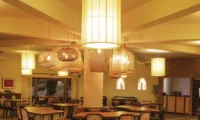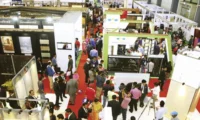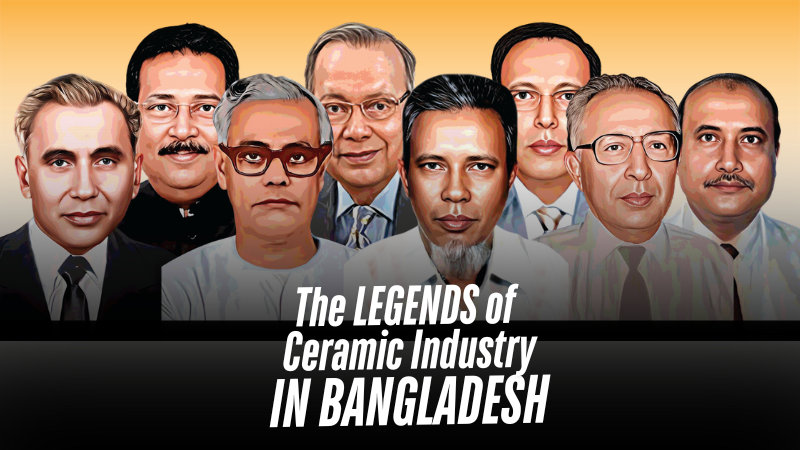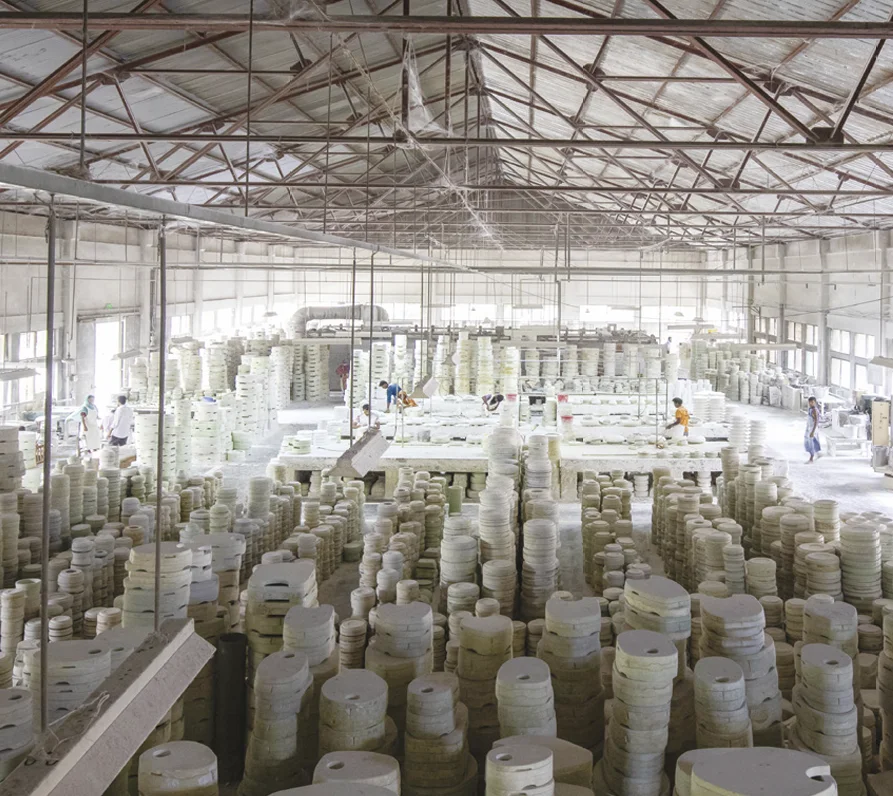
Becoming the number one is a challenge, and retaining that position brings about a bundle of never-ending hurdles that very few companies can tackle. Shinepukur Ceramics Limited (SCL) has been in the top position in the tableware segment, in terms of revenue and market share, for the past couple of years. Export is Shinepukur’s strong suit – It has been exporting high-grade porcelain (since April 1999) and bone china (since November, 1999) tableware and has established dominance in the export market. The company’s CEO says quality is the core reason why SCL products are in such demand abroad. It exports products the USA, Canada, the UK, Germany, France, Italy, Japan, Sweden, Norway, Denmark, Finland, Spain, Poland, Mexico, Brazil, Chile, UAE, Australia, New Zealand, Turkey, India, Egypt and Russia. Shinepukur’s “compliant factory” has been audited multiple times by SMETA, BSCI, GMP, and CTPAT, and has received an ISO 9001:2015 certification. Its tableware complies with the Norwegian Standard, California State Prop 65 Standard, and the EU Standard. Dhaka) shelters the SCL, a member company of Beximco Group.
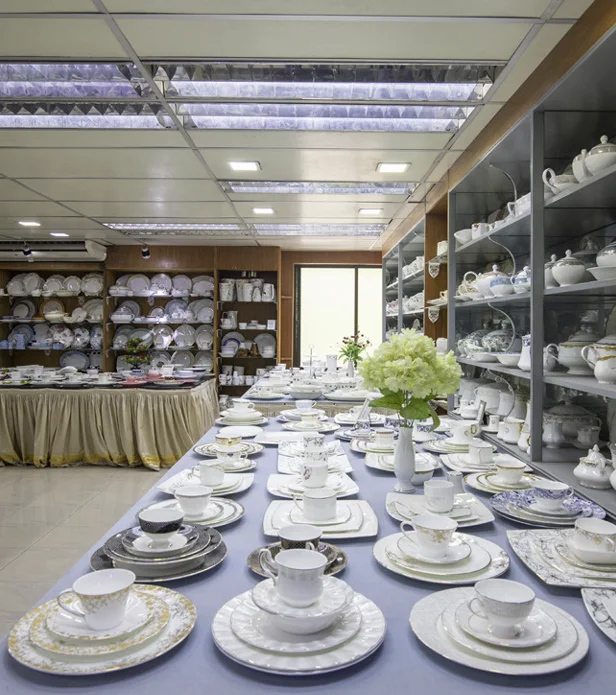
Registered in 1997, the company’s plants were commissioned in 1998, and started production in 1999. BEXIMCO Industrial Park (near Dhaka Export Processing Zone, 40 kilometres off Shinepukur is capable of making surreal tabletops with high durability for airlines, hotel ware, and other industrial usage. The versatility of the production houses allows the company to reach out to all demographics of ceramic users all over the world. The glaze is free from lead and cadmium free and of course health hazards, and its designs are demandingly likeable.ecoming the number one is a challenge, and retaining that position brings about a bundle of never-ending hurdles that very few companies can tackle. Shinepukur Ceramics Limited (SCL) has been in the top position in the tableware segment, in terms of revenue and market share, for the past couple of years. Export is Shinepukur’s strong suit – It has been exporting high-grade porcelain (since April 1999) and bone china (since November, 1999) tableware and has established dominance in the export market. The company’s CEO says quality is the core reason why SCL products are in such demand abroad. It exports products the USA, Canada, the UK, Germany, France, Italy, Japan, Sweden, Norway, Denmark, Finland, Spain, Poland, Mexico, Brazil, Chile, UAE, Australia, New Zealand, Turkey, India, Egypt and Russia. Shinepukur’s “compliant factory” has been audited multiple times by SMETA, BSCI, GMP, and CTPAT, and has received an ISO 9001:2015 certification.
Its tableware complies with the Norwegian Standard, California State Prop 65 Standard, and the EU Standard. Dhaka) shelters the SCL, a member company of Beximco Group. Registered in 1997, the company’s plants were commissioned in 1998, and started production in 1999. BEXIMCO Industrial Park (near Dhaka Export Processing Zone, 40 kilometres off Shinepukur is capable of making surreal tabletops with high durability for airlines, hotel ware, and other industrial usage. The versatility of the production houses allows the company to reach out to all demographics of ceramic users all over the world. The glaze is free from lead and cadmium free and of course health hazards, and its designs are demandingly likeable.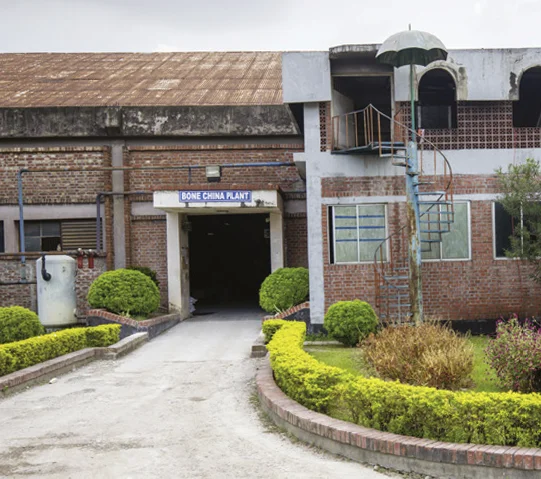
Technology
Shinepukur uses machineries procured from Japan’s TAKASAGO, MINO, and SKK. It uses latest technology to produce world class products. For the Bone China Unit, the company uses technology transferred by NIKKO Japan. SCL has over 3,000 skilled workers and the company provides extensive training to all the workers. When it comes to quality control and product testing, SCL has its own laboratories, raw material disposal set up, gas-based power generation plant, water supply from deep tube-well, and sanitary facilities. For safety, it has kept in house doctors for the medical centre. The machineries for porcelain and bone china tableware are sourced from Germany and also Japan. These machines are capable of producing 4.5 million pieces of Bone China and 10 million pieces of Porcelain Tableware annually.
Interview with CEO Mr. Humayun Kabir
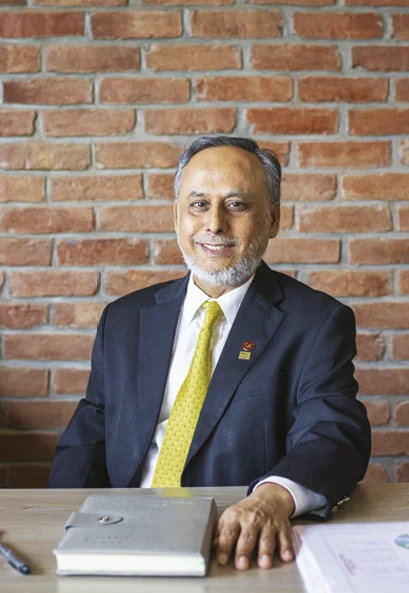
“Companies rise and fall based on how well they can predict and prepare for the future and finally, how accurately they execute their preplanning. Ceramic giants are constantly f ighting never-ending challenges and Shinepukur as a ceramic frontrunner has faced the worst of them. Shinepukur’s current dominance in the market is due to the lion’s share it holds when it comes to export,” the Chief Executive Officer (CEO) of Shinepukur Mr. Mohammed Humayun Kabir FCA told Ceramic Bangladesh. About the growth of the company, he said. “We won the export trophy nine times; of them five are Gold trophies won in five consecutive years from FY 2014-15 to FY 2018-19 while the first gold trophy was won in FY 2000-01.” “We don’t necessarily work to win awards and trophies. Rather, the awards come later in recognition that inspires us for the future,” added Mr. Kabir.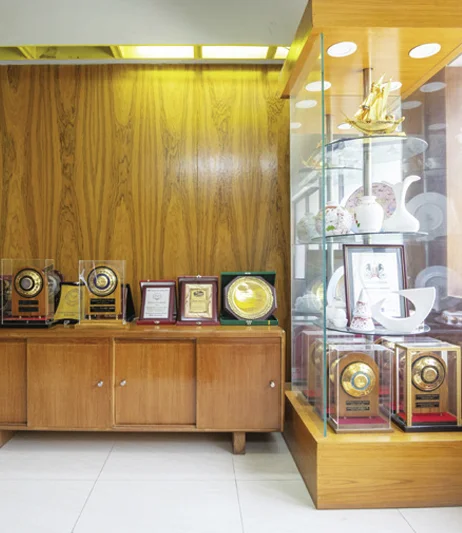
One of the driving forces is meeting the stakeholders’ interests. “The company must have sustainability. We have a drive for sustainable growth and that has been the key to winning national export gold trophies so many times,” he pointed out.
“Supplying sources of ceramic tablewares shift from one country to another”
Mr. Kabir stated that the company management wants all the stakeholders to get their due share from the company. “Since Shinepukur is a listed company and has large number of shareholders, the company practices code of Corporate Governance in true spirit. The board is separate from the management. The board members are representatives of the shareholders and are responsible for framing policies. The management is comprised of professional managers and is responsible for planning and operations of the company within the policies framed by the Board. The management focusses on the return on investment, because, the shareholders who have invested in the company are expecting better return.” Mr. Kabir explained. “In this regard our journey was neither easy nor smooth. Shinepukur has to face the competition, tackle counterforce and survive,” he added.
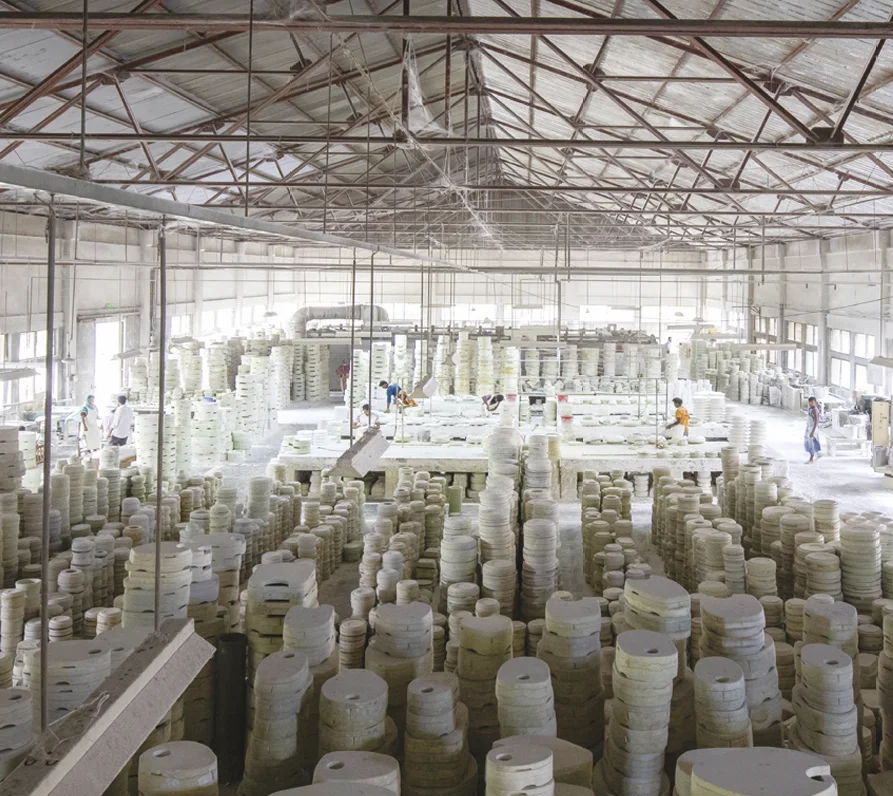 Tackling counter-forces
Tackling counter-forces
The pandemic period was a struggle for many; it was a prolonged counterforce. During April-June 2020 the company had to shut down operations, but had paid wages, salaries, utility bills and dues to lenders. Similar situation prevailed during March-July 2021. Even when the restriction was put to an ease sometimes retail shops were closed. “How were we supposed to operate under such circumstances? Where are we supposed to sell our products?” Mr. Kabir recalled. Shinepukur had to tackle the problems like everyone else. “And then there was a time when we were operating but the European and North American stores were either shut down or customers’ visits to stores were significantly low – a situation which affected our export sales during FY 2019-20 and FY 2020-21. The UK, Italy, China, New Zealand, South Korea and India had also shut down causing backward supply chain disruptions. The Covid caused longer voyage time and increased ocean freight which pushed the cost of imported raw materials up substantially. Both forward and backward supply chains faced tremendous counterforce” he added.
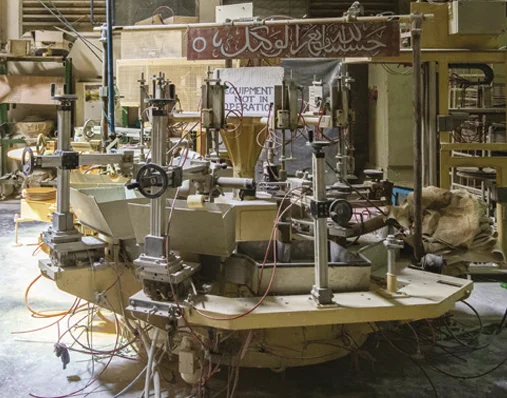
Shinepukur always needs continuous growth to survive in the industry. “Without it, the company will die,” the CEO believes. “Whenever the growth stops, the company goes into a declining stage, but it needs to be going upward at all times. From the financial point of view the government is one of the major stakeholders of Shinepukur. In the form of VAT, customs duty and income taxes, we pay more than 30 per cent of our economic value additions each year to the government.” SCL, being a publicly listed company, publishes quarterly financial statements and has to stay transparent paying dues to all stakeholders. “How many companies paid to the employees as per labour law in force?” Mr. Kabir said. “Many companies in the industry doesn’t pay the government dues on account of VAT & taxes properly. The export trophy we won is not just for achieving highest export figure, it confirms that SCL is a transparent company as well. It also represents Shinepukur’s excellence in quality, commitment to continuous improvement in its products, compliance with laws and practice in best corporate culture, that is, be fair and ethical with whom we interact and to the society wherein we operate. Not everyone has committed to export as we have. We are export-oriented, and have a significant contribution to the country’s total annual export of ceramic tablewares,” he added.
Shinepukur as an export giant
Shinepukur contributes major portion of the country’s export of tableware. On how Shinepukur held such a market share over the past 23 years, Mr. Kabir said: “This reflects our strength. We have loyal employees and that is our core strength. And the overall confidence of the company stems from this loyalty from our work forces. As a result of this loyalty, we are able to hold on to the trust of our buyer community and enhance our capabilities in product designs and on time deliveries meeting the customers’ needs. These two factors aren’t mutually exclusive, and are rather dependent on each other.” The company exports 60 per cent ot its products and these products retain quality all the time. “Not everyone can export for so long. We assure an overall environment that meets all quality requirements including compliance with laws of the countries we are exporting to,” Mr. Kabir said. “It is with a heavy heart I have to say that some entrepreneurs are copying our’s designs and technologies. They are investing in the business and that’s how they are initiating. But they have zero clue of the risk factors. They haven’t done any professional analysis or feasibility. Rather they are copying our company’s innovations and creative works. They don’t know what value addition they are bringing to the table.”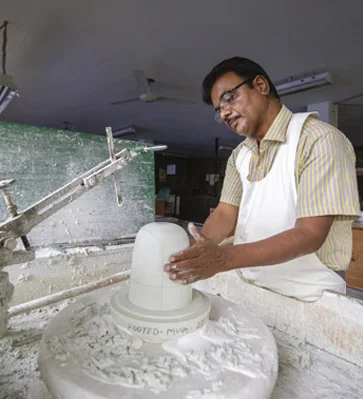
While discussing the visions of a company and how a company can prevail in the industry, Mr. Kabir shared his experience. “I was a director at Monno Ceramics in 1980s and knew that Monno came to business with Porcelain ceramic tablewares focusing on the export market. When Shinepukur came to the industry it had its own visions with new technology and field of operations, bought Bone China technology from Japan and worked to establish our footprint both in the domestic and global markets with our unique and new range of products.”
“Shinepukur is a pioneer in this country for bone china technology. In the tableware industry, the most strict quality requirement came from California state proposition of USA and European countries’ quality standards. Shinepukur is one of the very few companies that can meet their quality requirements,” he said. Regarding technology Mr. Kabir said, “Soft skills in this industry is more valuable than hardwares, and so we give special attention to the development of soft skills of our work forces and focus on research and innovation, and technological updates. It is not just about investing a lot of money in kilns or other equipments. Shinepukur has to work really hard to maintain its position. We differ from others because we collaborate with many institutions and individuals both in Bangladesh and abroad who have excelled in the technological field and went into joint research programme with them.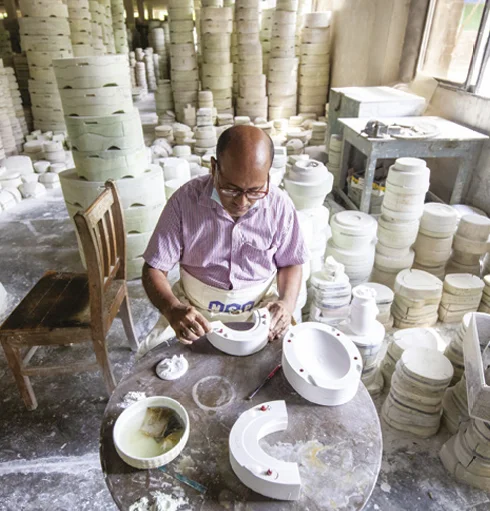
This gave us access to a talent pool and trained professionals and designers. These are our key areas and we prioritise them when it comes to research and development of shapes and new designs.”
A misconception that ‘the global demand has increased’
Mr. Kabir said, “The shift in global demand doesn’t mean the global demand is increasing. What I see, the supplying sources of ceramic tablewares have shifted from one country to another, but the global demand hasn’t increased. Some people in the industry are investing on this misconception and expanding their businesses. This can only result in a catastrophic disappointment in future.” The CEO added, “Shinepukur is always analysing the global demand constantly and figuring out suitable marketing spots across the world. There has been a cultural change as well. Doing business right now is tough because the trend of using ceramics tablewares is going down in advanced countries. The global phenomenon of using supplementary or competing products is a challenge for the industry. Energy security is also a big concern about the future of the industry.
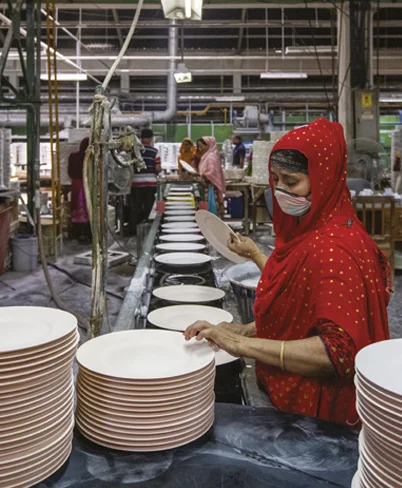
While we invest, we not only look for potential economic or financial return but also comply with laws and regulations relating to humans, environment and governance.” About disappointments he has faced while working at Shinepukur, Mr. Kabir mentioned that Shinepukur is behind most of the skilled work force in the industry. “We trained them, offer opportunity to upgrade their skills, taught them machine and software operations, but at the end we lost our intellectual property to other companies. If you ask a prominent employee from the ceramic industry about his work history, most of them would say that they started in Shinepukur and later on went to work for other companies. This brain drain is a loss for our company since we invest in training our employees.”
Disappointment is the National Budget
The Shinepukur has also disappointment about some budgetary measures. He said “I don’t blame anyone other than the ongoing circumstances. It’s a challenging time because there is deficiency in supply of energy and electricity, currency market fluctuation and inflationary pressure in the economy. Under such circumstances I could not understand what the budget was actually focusing on. The VAT rate of Bangladesh in general is 15 per cent. But its incidence on Shinepukur, comes to more than 21 per cent. If the share of exports goes up, the VAT incidence will also go up. Thus the fiscal laws – the rate of VAT and Taxes Deducted at Sources (TDS) are not export-friendly. This is mainly due to non-refund of excess VAT and TDSs. We pay VAT @15% and 3% AIT – total 18% on importing raw materials. In addition we have to pay 5 per cent AIT at import stage and up to 5 per cent TDS on domestic institutional sales. Since we are exporting 60 per cent of our products, we cannot recover the excess paid VAT and Taxes due to adversary and ineffective VAT refund system. In the FY 2022-23 budget the government has further increased the TDS from 0.5 per cent to 1.0 per cent on the realised export proceeds and thereby increased the effective tax rate for the export oriented companies.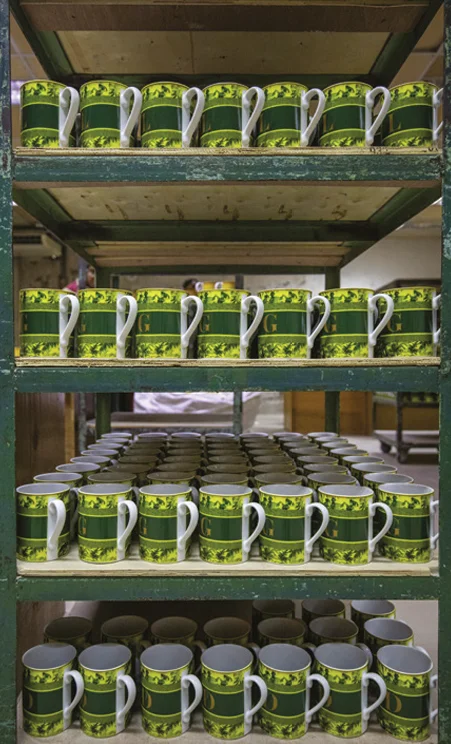
The budget doesn’t recognise the problems of export-oriented tablewares companies which are disappointing. Excess VAT and TDS are blocking working capital, increasing cost, reducing competitiveness in the global market and thereby lowering the export potential for Bangladesh-origin tablewares manufacturers.
Written by Chisty Rahim



